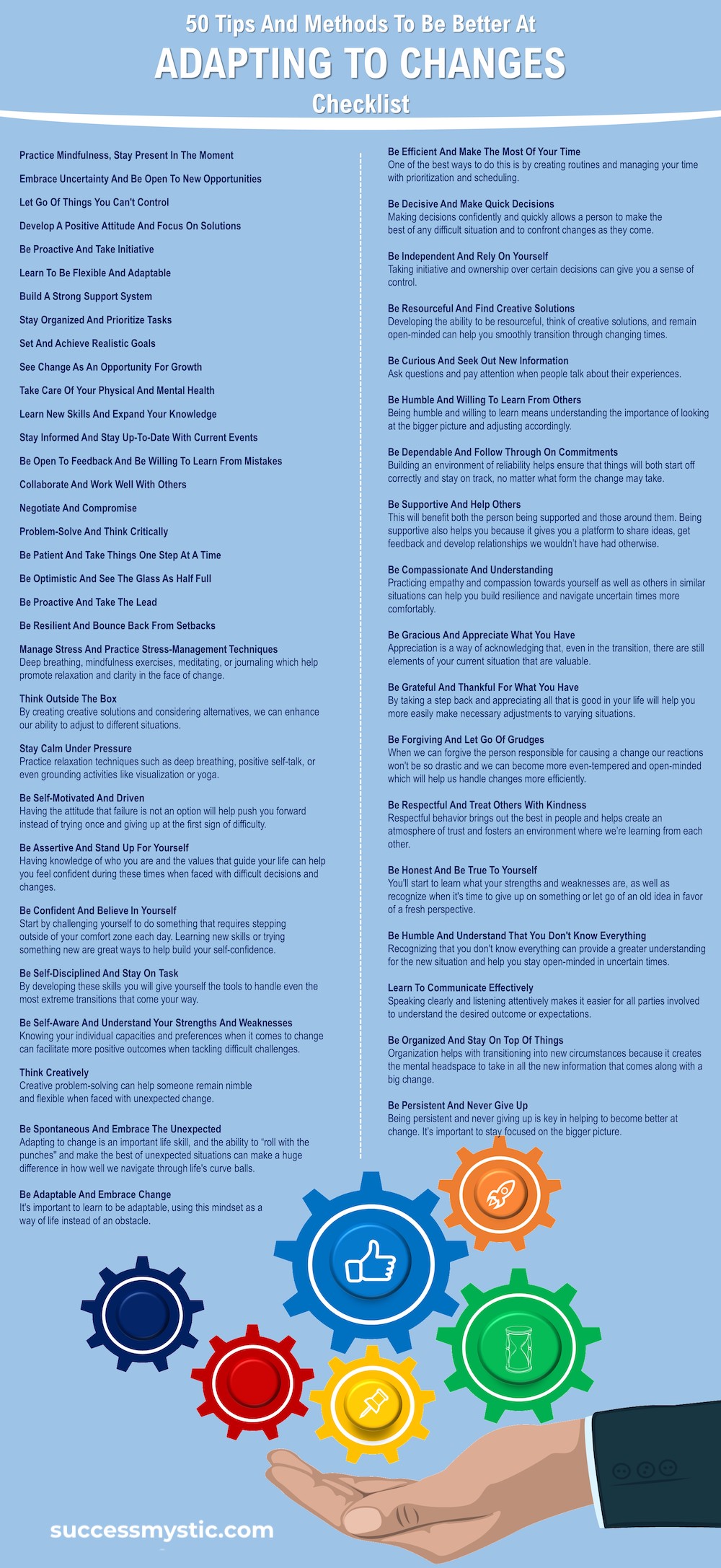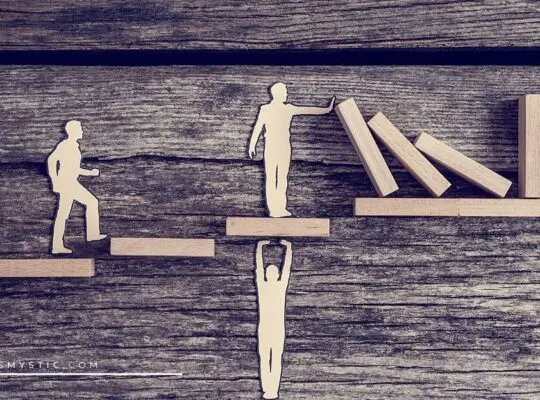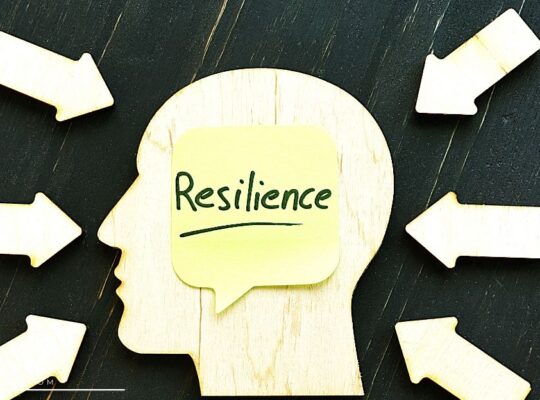Adapting to changes is an essential life skill in a constantly fluctuating and ever-evolving world. Change can bring about uncertainty, but it can also help us grow and develop interpersonal skills such as problem-solving and resilience.
50 Tips And Methods To Improve Your Ability To Adapt To Changes
The following 50 tips dive deep into strategies we can use to help ease the transition when changes take place. From practical methods like learning how to brainstorm solutions together as a team to personal advice such as adjusting your attitude, readers are sure to find something that will suit their needs and aid them in mastering the art of adaptability.
1| Practice Mindfulness And Stay Present In The Moment
Practicing mindfulness means being aware and in the present moment rather than automatically reacting or drifting off into worries about the future or regrets of the past. Taking a few moments to pause, breathe and refocus on the present can help you remain calm during stressful change situations.
Additionally, think positively; focus on how the change will bring something new into your life, and how you’ll use this to overcome any challenges that come with it. With practice, you’ll gain resilience to face any changes that arise with ease!
2| Embrace Uncertainty And Be Open To New Opportunities
Life throws us curve balls on a daily basis and it is important to be flexible when things don’t go to plan. Embracing uncertainty can be hard, but unlocking the door of opportunity that new changes bring can lead us down paths we least expect. To become better at adapting, stay mindful and accept that life will bring challenges rather than running away from them.
Once you open yourself up to the possibility of change, you can take advantage of the opportunities that come your way. Cultivating an attitude of openness towards new possibilities will not only benefit you during times of transition but also nurture growth over time.
3| Learn To Let Go Of Things You Can’t Control
Learning to let go of things you can’t control is an essential tip for adapting to changes. Though it may not seem like it, holding on to negative thoughts or experiences will only impede your progress and hinder your ability to peacefully transition through life’s obstacles.
You must direct your energy into understanding the changes and how you can improve yourself rather than ruminating over what you cannot change. This means releasing yourself from the need for absolute control – recognizing that trying to achieve this is not only unproductive but can cloud your judgment and prevent you from accepting new opportunities that may arise.
4| Develop A Positive Attitude And Focus On Solutions
When you are presented with a change, see it as an opportunity instead of a challenge and focus on the benefits that this change may potentially have. You may find that if you approach the new situation with optimism, it will become easier to adjust.
Also, key is being able to accept change rather than resist it – allow yourself space and time to process what has happened and make efforts to think about how you might turn the new information into something positive.
5| Be Proactive And Take Initiative
One of the best tips to become better at it is to be proactive and take initiative. This means that as soon as you encounter any kind of change, you should start taking active steps to get used to the situation quickly. It could help if you focus on understanding the reasoning behind the change, instead of just dismissing it right away. As challenging as it might seem, proactively adapting to changes will help you stay ahead of the game and make transitions smoother for yourself and those around you.
6| Learn To Be Flexible And Adaptable
The key is to learn to be flexible and adaptable by focusing on the advantages of change, rather than the potential drawbacks. It can help to come up with plans or strategies to embrace whatever new developments come your way in order to make the transition smoother.
If you need additional support, consider getting help from someone who is experienced in this area, such as a life coach or therapist who can help guide you through the process.
7| Build A Strong Support System
Having family and friends you can lean on when times get tough can give you the boost of confidence necessary to make the transition smoother. You could take advantage of the knowledge and experiences of those around you to help come up with creative solutions for solving challenges that arise from your change in circumstances. Of course, there’s also value in taking time for yourself to collect your thoughts and feelings before deciding how best to manage the changes and situation.
8| Stay Organized And Prioritize Tasks
Being organized will allow you to break down the changes into manageable steps and make the transition smoother. Prioritizing tasks tells you which ones should be tackled first, so they won’t get lost amidst the chaos of change–making sure that important items aren’t neglected despite all of the other things happening at once. With an understanding of how these two ideas work together, it’s possible to make big life changes without feeling overwhelmed.
9| Learn To Set And Achieve Realistic Goals
Setting realistic and achievable goals for yourself is another great way to make the transition smoother. Knowing what you want to achieve and having a plan of action can help you stay focused on the most important tasks, and also give you something to strive towards while adapting to new changes.
10| See Change As An Opportunity For Growth
Learn to see change as an opportunity for growth and development. Take the time to reflect on what has happened and how it has impacted your life in positive or negative ways, then use that knowledge to make informed decisions regarding future changes. With this attitude, you can plan ahead and embrace any new developments with confidence and enthusiasm.
11| Take Care Of Your Physical And Mental Health
Be mindful of your physical and mental health during times of change. Make sure to nurture yourself in whatever way is most helpful for you; this could range from getting enough sleep and eating nutritious foods to engaging in meaningful activities or engaging in self-care practices like meditation. Doing so will help ensure that any transition is as smooth as possible.
12| Learn New Skills And Expand Your Knowledge
Learning new skills and expanding your knowledge to help you better manage change. Take a class, read books, or find online resources on topics related to the changes you’re dealing with. Having a stronger understanding of the situation can make it easier to adjust and cope when times get tough.
13| Stay Informed And Stay Up-To-Date With Current Events
Taking the time to read quality news from reliable sources will help you develop perspective and stay informed about what’s taking place in your respective industry, community, and the even larger society. Watching news shows, attending seminars and reading about a relevant subject matter can help you remain ahead of the curve.
Additionally, allowing yourself to be enveloped in alternative environments and points of view helps open up new possibilities that could be further explored when responding to an eventual shift or change. Understanding adaptation starts with information, so keeping your eyes open as staying informed helps ensure that you are prepared to tackle any changes that come your way.
14| Be Open To Feedback And Be Willing To Learn From Mistakes
Accepting external input can help you gain awareness of areas where you could improve or adjust, which will prepare you for the next change that comes your way. Additionally, be willing to learn from mistakes as they happen. Even if a plan fails, there are still lessons to be gleaned from the situation that can help you make smarter decisions next time around.
Otherwise, chances are that future changes won’t go quite as smoothly as they could have. When it comes down to it, staying open minded and actively reflecting on experiences is the best way to start becoming more adept with changes.
15| Stay Calm Under Pressure
Learning how to stay level-headed and collected during difficult moments can help keep your emotions in check and allow you to think clearly about possible solutions. Don’t let fear or panic take over; instead, try and think logically and realize that almost any problem has some kind of solution.
You can practice staying calm under pressure by practicing relaxation techniques such as deep breathing, positive self-talk, or even grounding activities like visualization or yoga. Taking steps towards improving your ability to remain collected during hard times will ultimately help you thrive when faced with change.
16| Learn To Communicate Effectively
By speaking clearly and listening attentively, it will be easier for all parties involved to understand the desired outcome or expectations. Additionally, when speaking about your own thoughts and opinions, remain objective and express them in a way that is respectful of those around you.
Furthermore, be sure to ask any relevant questions that clarify the change if something needs further explanation or clarification. Learning how to participate in healthy conversations surrounding change will help build trust and ensure everyone understands their role in making it happen.
17| Learn To Collaborate And Work Well With Others
Collaboration involves multiple minds working cohesively together in order to achieve a shared goal, and when everyone on the team can communicate their ideas effectively, it forms an environment where each individual’s potential can benefit from one another exponentially.
Working cooperatively with everyone involved builds trust and develops relationships among team members which will allow for more fluid problem-solving as well as greater efficiency when navigating through change.
18| Learn To Negotiate And Compromise
Being able to negotiate means being able to listen, comprehend, and understand the different points made by each party while avoiding heated or emotional arguments. On the other hand, having the ability to compromise given any situation allows both parties involved to come up with an agreeable solution despite their differing views on the same issue.
Learning how to use negotiation and compromise in everyday life will make it easier for individuals of all ages and backgrounds to manage change and disruption as they arise in their lives.
19| Learn To Problem-Solve And Think Critically
Developing the ability to problem-solve and think critically are two great tips for becoming better at adapting to change. Being able to tackle problems head on, using your own critical thinking skills will help you analyze them and come up with solutions.
Learning how to problem solve on your own can also give you the confidence that you need when approaching different changes in life. Additionally, taking small steps towards developing the skill of critical thinking can help give yourself the perspective that is necessary in order to understand different situations and make sound decisions.
20| Manage Stress And Practice Stress-Management Techniques
One way to become better at adapting to changes is to learn how to manage stress and practice stress-management techniques. Learning how to recognize the signs of burning out helps ensure we are taking care of ourselves both mentally and physically. We can also practice techniques such as deep breathing, mindfulness exercises, meditating, or journaling which help promote relaxation and clarity in the face of change.
21| Think Outside The Box
By creating creative solutions and considering alternatives, we can enhance our ability to adjust to different situations. As a result, instead of instinctively resisting change, we can understand why it’s necessary and explore ways to make the most of it. We don’t need genius ideas every time, just clever and reasonable decisions that will help us move forward and develop our potential for growth.
22| Learn To Be Resilient And Bounce Back From Setbacks
Resilience refers to the ability to trust your instincts and cope with difficult situations. It involves learning how to bounce back from setbacks while keeping a positive mindset and focusing on growth.
Look for resources such as books, podcasts or videos that cover topics such as decision-making, stress management and how to manage disappointment. Then, practice applying mindfulness and self-compassion tactics in your everyday life. This will help you stay calm, focused, and willing to try again when facing unexpected changes in life.
23| Learn To Be Patient And Take Things One Step At A Time
Taking things one step at a time will help you work through the adjustments without getting overwhelmed. Start by breaking your goals down into smaller pieces and tackling each section one by one as this will make it much more manageable. Many people find that staying organized is helpful when transitioning to a different routine since it helps them keep track of what needs to be done. It’s also important to be proactive and research ways to preemptively adjust before the change happens and make a plan for what you’ll do in response.
24| Be Optimistic And See The Glass As Half Full
Having a positive mindset allows you to look for opportunities instead of dwelling on the struggle or fear of failure. Learning to anticipate the positives instead of focusing just on the negatives can help motivate you to keep going and stay resilient.
An example of this could be choosing to learn from mistakes rather than repeating them and using past experiences to help your future endeavors. Whenever something unexpected or unpleasant occurs, remind yourself that every change means new possibilities and that each situation has its own unique lessons.
25| Be Proactive And Take The Lead
To become better at adapting, it is important to take charge and stay proactive. Don’t settle for the ways things are, but strive to make improvements through creative problem-solving. Make an effort to be the one who leads decisions, asks questions and generates ideas.
Taking the lead helps to build confidence in your abilities for when you face challenging changes. Preparing yourself with the right mindset and determination will likely lead you to success in adapting quickly and efficiently.
26| Learn To Be Self-Motivated And Driven
Being able to motivate yourself is a skill that can help you reach your goals, achieve excellence in all areas of life, and become more resilient during times of hardship. When it comes to adapting to change, having the attitude that failure is not an option will help push you forward instead of trying once and giving up at the first sign of difficulty.
Additionally, staying determined in initiatives and tasks even when the process isn’t as easy as you had anticipated will prevent procrastination and help you stay focused on the end result.
Cultivating strong self-motivational habits such as positive reinforcement, setting attainable goals, creating a detailed plan of action and seeking support from others will lay out a road map towards achieving success in embracing changes.
27| Learn To Be Assertive And Stand Up For Yourself
Having knowledge of who you are and the values that guide your life can help you feel confident during these times when faced with difficult decisions and changes. It’s also important to really listen to the other person involved and have a full understanding before deciding on an answer. You should be willing to speak up for what you believe in without fear, no matter how daunting the situation may seem.
Having a few constructive strategies on hand such as asking thoughtful questions or summarizing both sides of the conversation can give you more confidence when speaking to others about your opinions. Being assertive isn’t necessarily being aggressive—it is simply stating your point in a clear, strong way that demonstrates respect for yourself and allows for open dialogue with the other person involved.
28| Learn To Be Confident And Believe In Yourself
Start by challenging yourself to do something that requires stepping outside of your comfort zone each day. Learning new skills or trying something new are great ways to help build your self-confidence. Additionally, make sure to set goals for yourself. Aiming for achievable targets will remind you that you’re capable of achieving really great things. Lastly, don’t be afraid to take chances!
29| Learn To Be Self-Disciplined And Stay On Task
Becoming better at adapting to changes is a key tool in life and it can lead to success. To learn how to do this, self-discipline and staying on task are key requirements. By developing these skills, you will give yourself the tools to handle even the most extreme transitions that come your way.
Make sure you take small steps towards achieving your goal of increased adaptability. Set aside time for practice and training, and focus on building up both your physical and mental endurance. Whether it’s making it through a tough couple of days or tackling long-term goals, you’ll be ready for whatever comes next when you’re able to stay disciplined and stick to the task at hand.
30| Learn To Be Self-Aware And Understand Your Strengths And Weaknesses
Learning to understand your strengths, limitations and values can help you develop a better understanding of yourself and what you may be able to accomplish in the face of adversity.
Knowing your individual capacities and preferences when it comes to change can also facilitate more positive outcomes when tackling difficult challenges. Thinking about how changes are likely to affect your current abilities, feelings and behavior will make it easier for you to adjust accordingly.
31| Learn To Be Creative And Think Creatively
Creative problem-solving can help someone remain nimble and flexible when faced with unexpected change. Building the habit of divergent thinkers is important, as it promotes thinking outside the box and allows someone to brainstorm various solutions.
Exercising creative problem-solving helps build resilience so that complications become opportunities to learn, grow and take on change better. Finally, engaging in activities that allow for more creativity such as making art or playing music can improve one’s openness to accept change with more ease.
32| Learn To Be Spontaneous And Embrace The Unexpected
Adapting to change is an important life skill, and the ability to “roll with the punches” and make the best of unexpected situations can make a huge difference in how well we navigate through life’s curve balls.
Learning to be spontaneous requires practice, but some techniques that can help include developing a growth mindset, trying new activities, learning to take risks in calculated ways, having conversations with different types of people and being mindful of everyday challenges while tapping into our creativity.
33| Learn To Be Adaptable And Embrace Change
It’s important to learn to be adaptable, using this mindset as a way of life instead of an obstacle. Start by trying something new each day, no matter how small the task may be. Accept that surprises and changes from time to time are normal and work into your routine without having any fear.
Don’t focus on being perfect in order to embrace change but strive for improvement instead. Finally, reflect which allows you to look back on your successes and failures and assess what adjustments you made along the way.
34| Learn To Be Persistent And Never Give Up
Being persistent and never giving up is key in helping to become better at change. It’s important to stay focused on the bigger picture: If a change or adjustment has been made in your life or workplace, take an optimistic approach, and determine how it could benefit you in the long run. You should also use the transformation as an opportunity for growth. Learning from challenges is one of the best ways you can become better at adapting – there’s always something valuable that can be taken away from them. Pushing yourself out of your comfort zone helps you to build character and encourages creativity.
35| Learn To Be Organized And Stay On Top Of Things
Organization helps with transitioning into new circumstances because it creates the mental headspace to take in all the new information that comes along with a big change. Especially if the change is happening quickly, having everything neatly filed away means there is less disruption when it comes time to adjust.
Being organized also helps keep track of what actionable steps need to be taken, either short-term or long-term, as well as creating delineations between what’s been completed and what’s left to do.
By understanding these timelines and goals one can better prepare for changes that occur in life rather than playing catch up once they happen. Staying on top of other people and situations also minimizes possible surprises and keeps everyone more informed about the new status quo.
36| Learn To Be Efficient And Make The Most Of Your Time
Becoming better at adapting to changes requires learning to be efficient and making the most of your time. One of the best ways to do this is by creating routines. For example, having a solid morning routine can set you up for success on any given day, no matter the situation.
To further increase efficiency, try setting calendar reminders for events and activities, so that you are always aware and prepared for upcoming tasks or time frames that need to be met. Plus, try breaking down large tasks into smaller ones, as this will make it easier to accomplish larger goals piece by piece.
37| Learn To Be Decisive And Make Quick Decisions
Making decisions confidently and quickly allows a person to make the best of any difficult situation to confront changes as they come. The ability to make quick and decisive decisions helps one stay ahead of potential issues that often arise with changes.
Acting on solutions right away avoids potential delays in progress caused by dawdling about too long on various courses of action. Being able to take action swiftly can help someone remain focused on the task at hand before the attempt is overwhelmed by other circumstances or tasks.
38| Learn To Be Independent And Rely On Yourself
Taking initiative and ownership over certain decisions can give you a sense of control and help you become more in tune with your own wants and needs. Also, focus on things that are within your control – such as ensuring that you keep up with current trends and technology, developing beneficial skills and growing valuable relationships – rather than letting yourself become overwhelmed by uncontrollable factors.
Remember to maintain an open mind; any challenge should be seen as an opportunity to strengthen your personal capability as well as equip you with new strategies for solving future problems. Following these tips will surely assist you in becoming better at adapting quickly when faced with unexpected changes!
39| Learn To Be Resourceful And Find Creative Solutions
Developing the ability to be resourceful, think of creative solutions, and remain open-minded can help you smoothly transition through changing and challenging times. Resourcefulness is the capacity to find new ways to make use of old resources. Instead of relying on traditional means, look for new ideas that require minimal effort and expense but will still result in success.
Creative solutions involve approaching tasks differently so they can be done more efficiently. This could involve developing a solution outside your skillset or comfort level – or it could simply mean taking a step back and looking at the situation from alternative perspectives.
40| Learn To Be Curious And Seek Out New Information
To become better at adapting to changes, it is important to develop both your curiosity and knowledge. Ask questions and pay attention when people talk about their experiences, inquiring further into topics that interest you.
You can also search the web for new information or pick up books on the subjects of your interest. In this way, the more educated you become, the easier it will be to handle challenging situations with grace and create opportunities within them. Developing a curious mind and gathering diverse knowledge are key factors in becoming better adapted to life choices.
41| Learn To Be Humble And Willing To Learn From Others
Being humble and willing to learn means understanding the importance of looking at the bigger picture and adjusting accordingly. It also includes putting self-interest aside to take in advice from both those below level, or even above it.
Life events can come quickly and unexpectedly, so having the ability to respond positively with humility will help make for smoother transitions when things don’t go as planned. Humility in life can create more clarity, understanding, and opportunity for growth when faced with uncertainty.
42| Learn To Be Dependable And Follow Through On Commitments
One of the best tips for adapting to changes is building a habit of being dependable. When colleagues and friends know that they can trust you to follow through on your commitments, it becomes easier to make progress with any adaptations you might have made. Building an environment of reliability helps ensure that things will both start off correctly and stay on track, no matter what form the change may take. Working hard to meet deadlines, honor obligations, and prove yourself as a dependable individual is key when striving for successful adaptation in any area of life.
43| Learn To Be Supportive And Help Others
Everyone needs a little extra support sometimes; it may be as simple as someone needing help with a task or project, or more of an emotional response such as lending an ear or giving advice. Doing this takes practice, but it will benefit both the person being supported and those around them.
Being supportive also helps out in our own lives because it gives us a platform to share ideas, get feedback and develop relationships we wouldn’t have had otherwise. Learning how to listen effectively, asking questions that really get to the core of the issue, and seeing things from another perspective will go far in helping us become better at adapting to change.
44| Learn To Be Compassionate And Understanding
Practicing empathy and compassion towards yourself as well as others in similar situations can help you build resilience and navigate uncertain times more comfortably. Taking the time to learn the perspectives and feelings of those impacted by a change can help you accept it better.
The act of being compassionate and understanding while adapting to a difficult change can also ultimately strengthen relationships and show others that we are capable of handling life’s uncertainties gracefully.
45| Learn To Be Gracious And Appreciate What You Have
Being gracious means having an attitude of kindness and thankfulness, regardless of what difficulties you may have gone through previous to the change. Appreciation often follows naturally as a way of acknowledging that, even in the transition, there are still elements of your current situation that are valuable. When facing changes, most importantly it’s important you focus on your current circumstances rather than worrying about the future. By reminding yourself to appreciate what you have now and maintaining a positive demeanor when things start shifting around you, adapting to changes will become easier too!
46| Learn To Be Grateful And Thankful For What You Have
It’s easy to focus on all the things you don’t possess when faced with unfamiliar circumstances, but by taking a step back and appreciating all that is good in your life will help you more easily make necessary adjustments to varying situations.
This grateful attitude has a wonderful two-fold effect which not only serves as an effective reminder of how blessed we are, but also allows us to make decisions with a more peaceful mindset; gently transitioning into whatever change is at hand.
47| Learn To Be Forgiving And Let Go Of Grudges
When we can forgive the person responsible for causing a change (even if we don’t agree with it), then our reactions won’t be so drastic and we can become more even-tempered and open-minded which will help us handle changes more efficiently.
Learning to forgive helps us step back and view difficult situations objectively so that even when changes are unexpected or unsought after, they can seem less daunting and more manageable. Forgiveness not only reduces stress and tension but also allows people to find contentment in their current situation, providing hope for better days ahead of them.
48| Learn To Be Respectful And Treat Others With Kindness
Respectful behavior brings out the best in people and helps create an atmosphere of trust, so it is important that we strive to be respectful and kind in order to foster positive relationships.
Additionally, it’s important to make sure that we’re learning from each other; focusing on open communication, understanding different points of view, and being attentive while listening will allow us to grow our relationships and become better at adapting. Finally, we must remember that mistakes are inevitable; practicing patience and being willing to forgive the mistakes of others can help create an environment of mutual growth.
49| Learn To Be Honest And Be True To Yourself
When you practice being honest with yourself, you’ll start to learn what your strengths and weaknesses are, as well as recognize when it’s time to give up on something or let go of an old idea in favor of a fresh perspective.
This can make it easier for you to acknowledge when a change is necessary and also make the transition smoother by not holding onto old habits out of fear or familiarity. Being honest and true to yourself also helps build trust within yourself: if you know you can rely on your own judgment and decision-making, then making changes won’t feel quite so daunting anymore.
50| Learn To Be Humble And Understand That You Don’t Know Everything
One of the most helpful tips for improving our ability to adapt is learning to be humble. Recognizing that you don’t know everything can provide a greater understanding for the new situation and help you stay open-minded in uncertain times.
When we understand that challenges are simply opportunities for learning and growth, adapting becomes more accessible and manageable. Furthermore, when facing a new issue, breaking it down into smaller pieces can help build confidence and make it less daunting when taken on as a whole. Learning to be humble leads to improved problem-solving skills, making adaptation easier and more successful.








